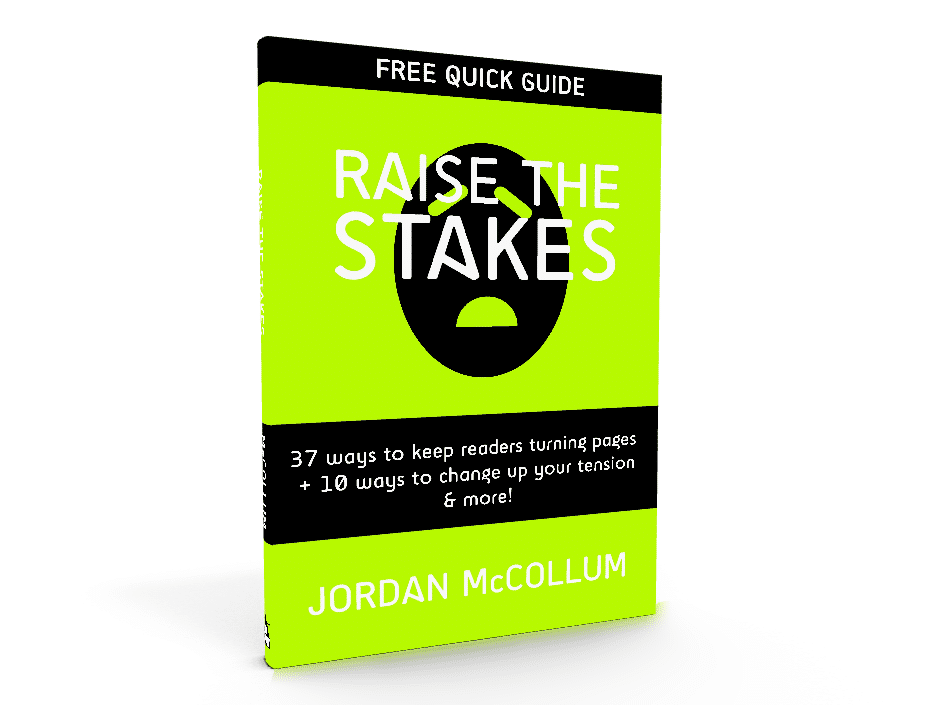UPDATE: Derrick reached his Kickstarter goal and his book will be out soon!
I met Derrick Hibbard ten years ago at a week-long church camp. Naturally, we’re now Facebook friends. I don’t think he knows I have this photo from when we met:
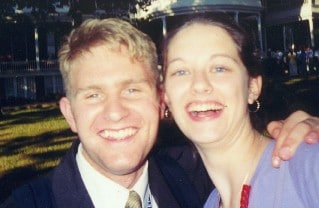

Derrick is a published author, but he’s going the self-publishing route for his latest novel, The Double Stroller Hand Grenade:
Peter, a bright-eyed and fluffy-tailed new attorney, witnesses the “hit” of the managing partner in his law firm. Because of this inadvertent run-in and supposed link with the mafia, Peter can’t find another job anywhere and is forced to tend his kids full-time while his wife, Alison, brings home the bacon. Peter hates the new job: His young kids are a whirlwind of destruction wherever they go, his daughter suffers from a crippling fear of an imaginary alligator, and he and Alison seem to be growing further and further apart as she works long hours. As it turns out, Alison is not an interior designer, as Peter was led to believe, but is the assassin who killed Peter’s boss—a fact that Peter is none-too-happy about—and things really get crazy when Alison’s peers decide that she is better off dead. What follows is a hilarious romp, as the emasculated Peter has to deal with a super-cool-femme-fatale of a wife, while he and his two kids are mercilessly thrust into a world of gangsters and professional hit men.
The Double Stroller Hand Grenade is mainstream fiction with an edge. It combines lighthearted romantic comedy with thrilling action and suspense.
Perhaps most unique about Derrick’s path to self-publishing is the way that he’s planning to pay for the costs: through fundraising on a social website, Kickstarter. Individuals can give as little as a dollar to help Derrick toward his goal (with various rewards at different pledge level, including copies of the book, dedications, etc.). Derrick’s hoping for $1500, and is nearly halfway to his goal in pledges—but if the other half isn’t pledged by midnight on July 31, Derrick doesn’t get the pledges.
This was actually the first time I’d heard about this type of funding for self-publishing, so I asked Derrick for an interview. Here’s Derrick in his own words, first in the video from his Kickstarter campaign, then the interview.
First of all, I’d like to thank Jordan for giving me the opportunity to do this interview on her blog.
Why did you decide to self-publish?
Well, that answer comes in different parts because it has been a very long process for me to get to this point. I think the main reason is because of the changing industry. Right now, the investment that inevitably comes with publishing novels by new authors is a risk that most publishers won’t take. Obviously, there are some first time novelists who are able to land the agent and get a publishing deal, but they’re few and far between. The industry is in a turbulent “change-mode” right now, with the advent of ebooks and the ease of printing books on demand. I’ve been working with traditional publishers for close to 4 years now, and in my opinion, self publishing high-quality books is a good way to gain experience in the industry and build a platform to use down the road. I figured that I might as well start building that platform and honing my craft instead of letting a pile of manuscripts gather dust on the shelves.
The second reason comes from my experiences with a traditional publisher. I’ve published two nonfiction books, Law School Fast Track, and College Fast Track, and we’re talking about a couple more to add to the “Fast Track” series. First of all, I’ve loved working with a publishing company and I feel that I’ve learned a lot about the publishing process. The only problem that I’ve had is that it takes so long for each title to be released, which is understandable given the amount of time and energy, from so many different people, that goes into each book. Once the book is finished with all of its rewrites, revisions and polishing, I’m ready to start working on the next one, but the book still has a long way to go in the publishing process and the publisher is hesitant to start new projects. The problem is, again, the risk involved with investing in each title. A publishing company wants to wait and see how each title does before jumping in with a new book. I feel that self-publishing (with fiction anyway) will give me the chance to focus on writing. I’ll be able to write a book, do everything it takes to get it ready to publish, release it to the world, and move onto another project.
The last reason, and maybe the most important to me, is that I write because I’m compelled to write. I love everything about writing, creating, and storytelling. I’ve loved it since I was kid and I’m pretty sure that I’ll continue to love writing until I kick the bucket and keel over. The point is, I write because I like sharing stories.
How did you find out about Kickstarter?
From a friend who was trying to get his project kickstarted.
If your book gets funded, roughly what do you anticipate the cost breakdown looking like?
I’m asking for $1,500 for the Kickstarter campaign and the breakdown for the costs are as follows:
- $35—Font licensing
- $125—ISBN
- $200-$400—Cover design
- $200—Copy Editing
- $200—Proofreading
- $400—Interior layout and design
- $75—Title setup fees with Ingram (a distributor who will make the book available in bookstores, magazine shops, airports, etc., in the US, UK, and Australia)
- $400—for marketing
What are you least looking forward to with self-publishing this book?
I’m not a huge fan of the technical side to publishing a book. I really prefer the creative process, so I guess I’m least looking forward to making sure all the little details are taken care of in order to publish a high-quality book. Of course, this is all part of the process.
What are you most looking forward to with self-publishing this book?
I’ve been researching internet marketing and developing new strategies for reaching new audiences—so I’m probably most looking forward to finding new readers and ultimately sharing stories with more people.
In parting, here is a cool quote—something that I think is relevant to all aspiring authors, and its something that I try and keep in mind with each new project.
Certain writers do not live, think or write on the range of the moment. Novels, in the proper sense of the word, are not written to vanish in a month or a year. That most of them do, today, that they are written and published as if they were magazines, to fade as rapidly, is one of the sorriest aspects of today’s literature.
–Ayn Rand
Although the quote is a bit pessimistic about today’s literature, I like to use it as a positive motivation: write books to last. Write books that engage the mind long after the story is over.
Thanks for the interview, Derrick! I find this all really interesting, even if I’m not quite ready to look into self-publishing myself. I was glad to get to learn more about this option!
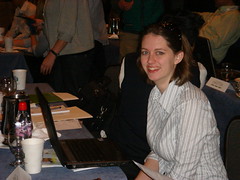 And, like I said, I wasn’t bad at it. In fact, I was considered an expert (admittedly low-level). I spoke at a conference. I even got recognized once.
And, like I said, I wasn’t bad at it. In fact, I was considered an expert (admittedly low-level). I spoke at a conference. I even got recognized once.







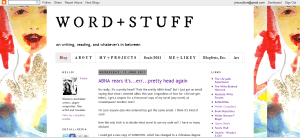
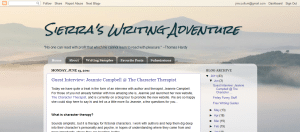
 .
.
